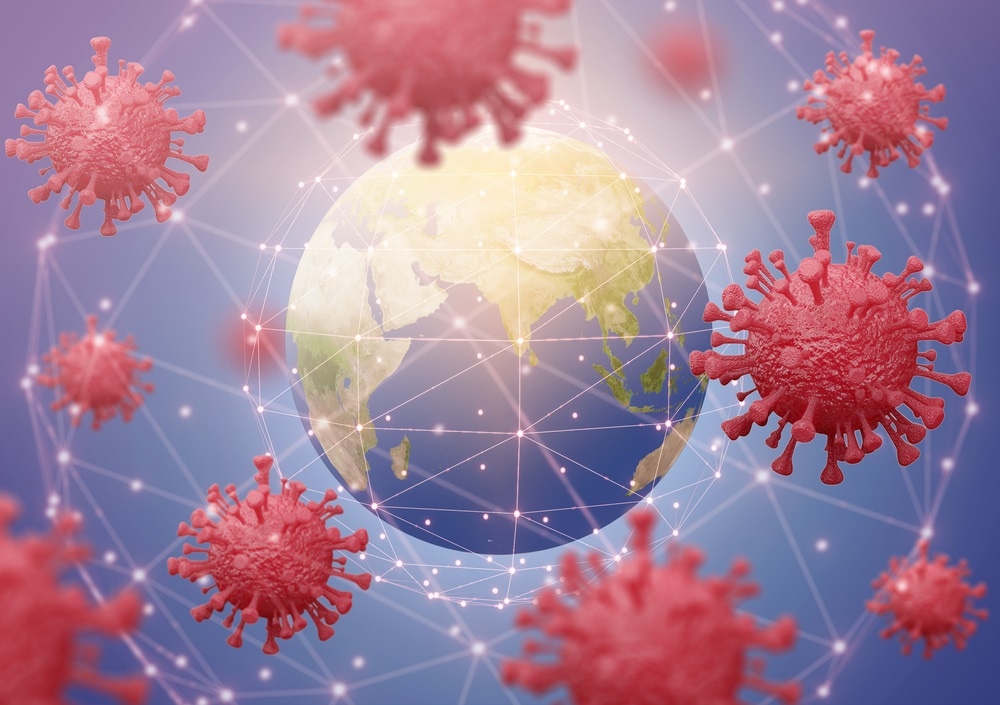The variant, thought to have originated in Brazil, is affecting travel to South America as effort is made to prevent its spread. Meanwhile, areas of Brazil are experiencing surging numbers of COVID-19 cases and oxygen supplies are running out.
 Image Credit: Near D Krasaesom / Shutterstock.com
Image Credit: Near D Krasaesom / Shutterstock.com
Identified in Japan
Japanese authorities notified the World Health Organization (WHO) of their concern over a new SARS-CoV-2 variant on 9 January after detecting it in airport tests from four travelers from Brazil. Whole-genome sequencing detected the variant.
The detected variant came from the B.1.1.248 lineage. Its mutations include the N501Y mutation, which it has in common with the variants reported by South Africa and the UK, and the E484K. This is the second variant detected from Brazil containing the E484K mutation.
WHO is currently working with both Japan and Brazil to evaluate the variant, determining if this variant is more severe, has higher transmission, or if it could be detrimental to current therapies, diagnostics or vaccines for the disease.
Technical consultations were scheduled to occur on the 12 and 15 January by the R&D blueprint for epidemics in which it discussed its agenda regarding evolving variants and vaccines.
Across the world, many countries are developing their own teams to monitor variants and their effect; for example, the UK launched their G2P-UK job today, a group consisting of scientists from a broad spectrum of specialties working to evaluate new variants and their potential effects on vaccines or transmissibility.
The situation in Brazil
Cases in Brazil are currently surging and hospitals are running out of space and oxygen. The situation has reached new levels in Manaus, a city in the Amazonas state, where patients have had to be transported out of their hospitals due to severe oxygen shortage. The new variant, detected by the Japanese authorities, was traced back to this region of Brazil.
There is much concern that this lack of help and supplies will result in many deaths as the situation becomes more desperate and healthcare workers send out pleas for oxygen supplies.
Why is this variant concerning?
Further research is needed to determine if this variant is going to increase negative public health concerns. At the moment there is no evidence of any variants that cause more severe illness or that render the current vaccines ineffective.
Similar to the UK and South Africa variant, the Brazilian variant appears to have mutations in its spike protein that may make it more highly transmissible. There is also concern that the South African and Brazilian variants may carry a mutation allowing them to evade some of human’s natural immune responses, although more research is needed to confirm this. If this is the case, it could reduce their response to the current vaccines.
Countries have started to enforce protective measures against the introduction of the variant, with the UK suspending arrivals from South America, Panama, Cape Verde and Portugal.
Reducing the spread
What remains important is reducing the spread of the virus as much as possible. Mutations and new variants will continue to occur as the pandemic continues. The more it spreads, the more chance it has to mutate, and the more chance a mutation will affect the current vaccines.
WHO advises all countries to increase testing the sequencing of SARS-CoV-2 viruses where possible and to share sequence data internationally, so that changes in the virus can be monitored."
World Health Organisation
WHO has encouraged countries around the world to increase genomic sequencing of the virus and to share the data, allowing for better monitoring of the evolving variants. They have advised individuals to continue to employ protective measures such as mask-wearing, physical distancing, avoiding crowds, ventilating rooms, and washing hands thoroughly and regularly.